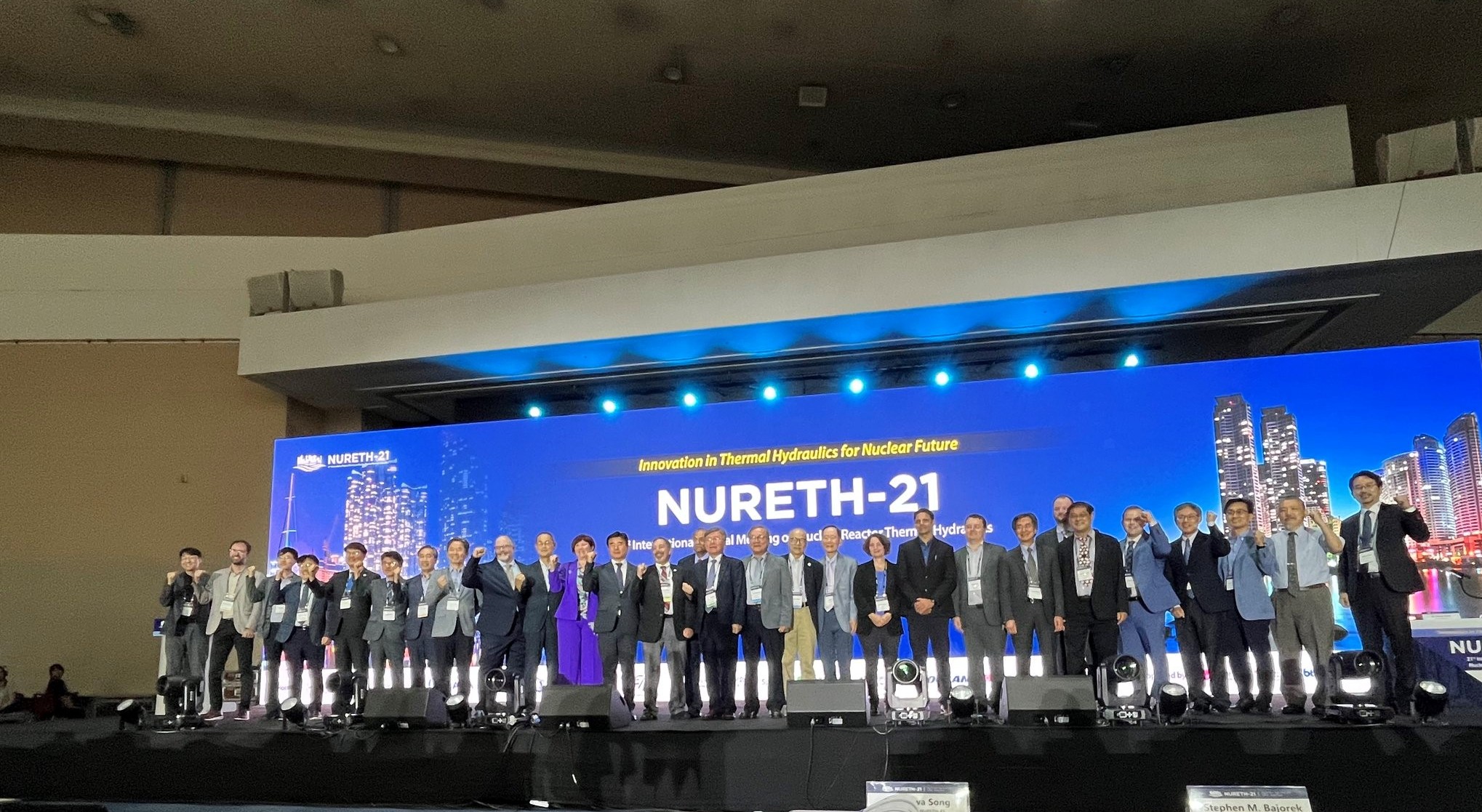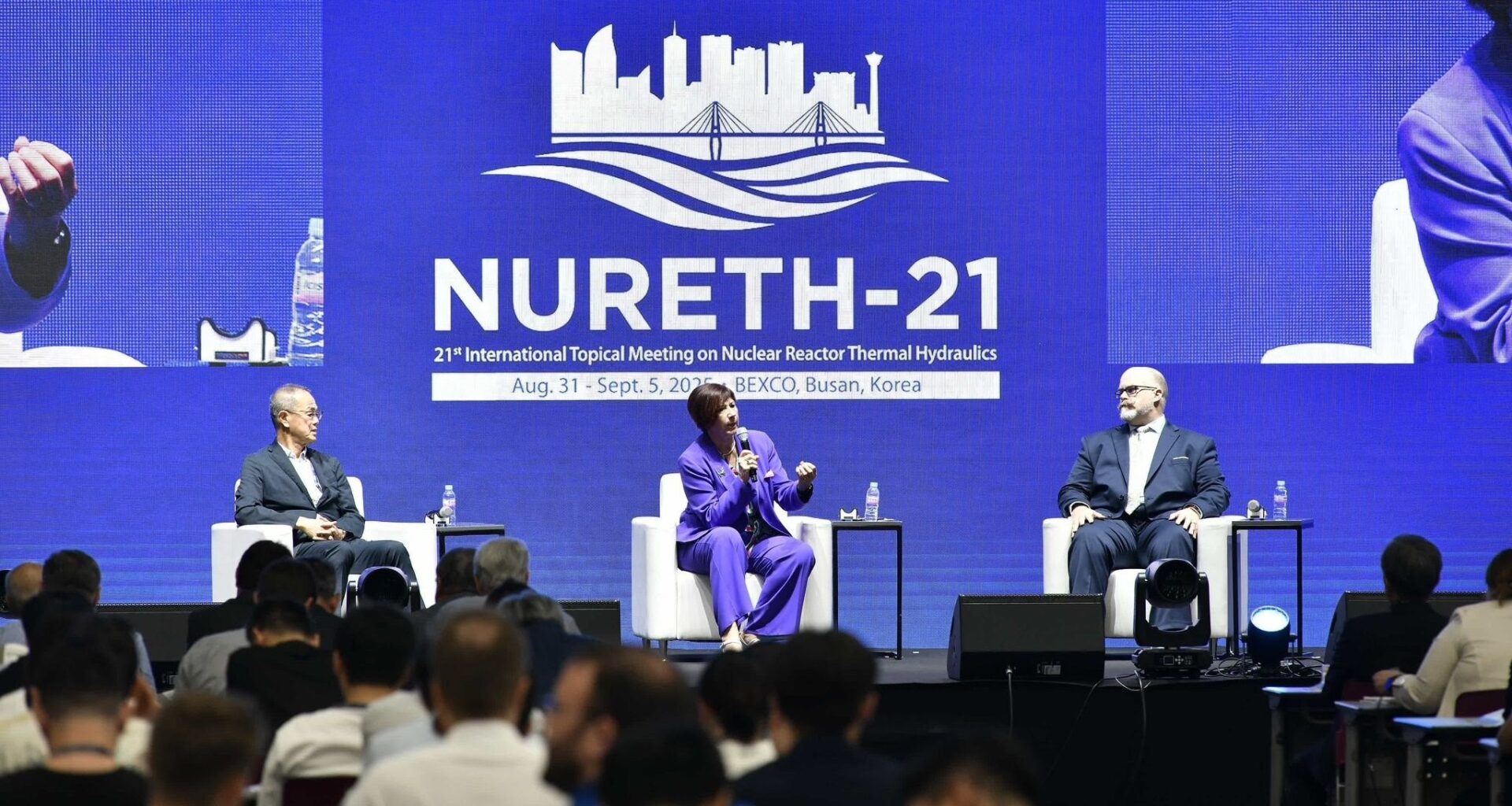The OECD Nuclear Energy Agency (NEA) participated in the 21st International Topical Meeting on Nuclear Reactor Thermal Hydraulics (NURETH-21), which took place from 31 August to 5 September 2025 in Busan, Korea. NURETH convenes leading experts in nuclear reactor thermal hydraulics, offering an opportunity to advance knowledge and foster international co-operation in nuclear safety research. This edition was organised in collaboration with the NEA.
The conference welcomed over 900 participants from nearly 40 countries, representing a diverse range of institutions including research organisations, regulatory bodies, industry, and academia. The conference featured over 700 technical papers, presented across 12 technical tracks covering topics such as advanced thermal-hydraulic experiments, benchmarking of system codes, computational fluid dynamics (CFD) for nuclear safety studies, and outcomes of recent NEA nuclear safety research joint projects. The papers highlighted a growing focus on emerging reactor designs, including non-water cooled reactors and small modular reactors (SMRs), along with the development of advanced modelling approaches and the exploration of artificial intelligence applications.
The event Technical Programme Committee was chaired by Ki-Yong CHOI (KAERI), Chair of the NEA Committee on the Safety of Nuclear Installations (CSNI). NEA experts contributed to NURETH-21 by providing technical presentations, chairing a session, and co-ordinating the activities. The NEA also contributed to nine technical papers, ensuring NEA’s work was visible at the conference.
Véronique Rouyer, Head of the NEA Division of Nuclear Safety Technology and Regulation, opened the conference with a keynote speech on the role of thermal hydraulics in defense-in-depth and severe accident management. Martina Adorni, Nuclear Safety Specialist at the NEA, served as a member of the International Advisory Committee and as co-leader of one of the technical track on special topics, and delivered technical presentations on the NEA Working Group on Analysis and Management of Accidents (WGAMA) and nuclear safety research joint projects activities. Didier Jacquemain, Senior Nuclear Safety Specialist at the NEA, acted as co-leader of a technical track on severe accidents and presented the NEA Framework for Advanced Thermalhydraulic Experiments for Nuclear Analysis and Safety Application (ATHENA). The NEA also organised the progress meeting of the NEA ATHENA framework.
The conference served as a key venue for showcasing ongoing international developments in WGAMA activities and NEA Nuclear Safety Joint Projects, which aim to support the safe operation of nuclear installations and close knowledge gaps through high-quality experimental data and analytical activities.


